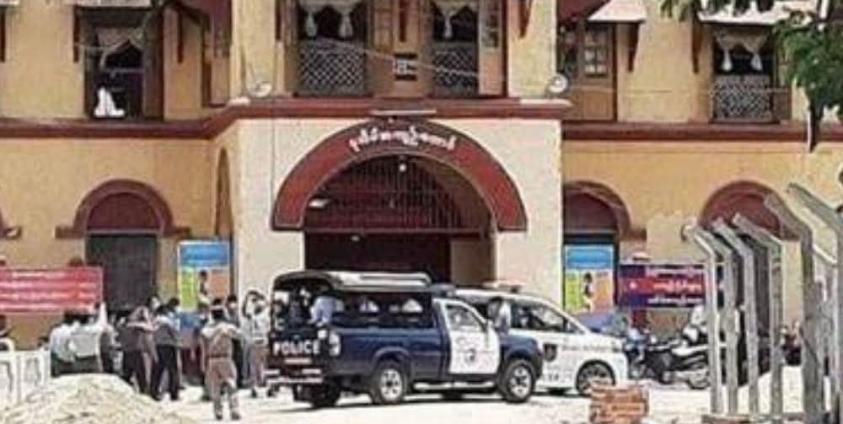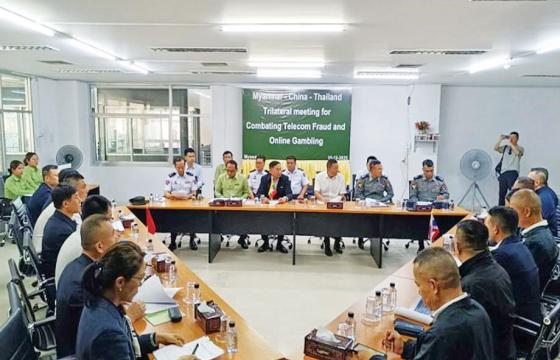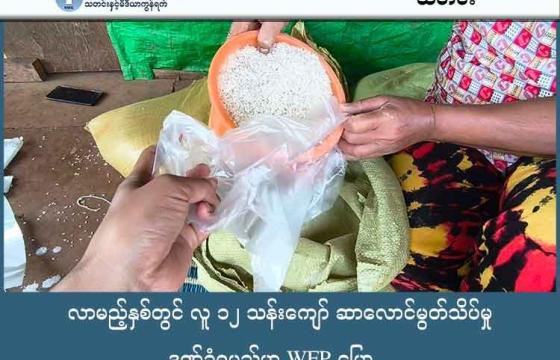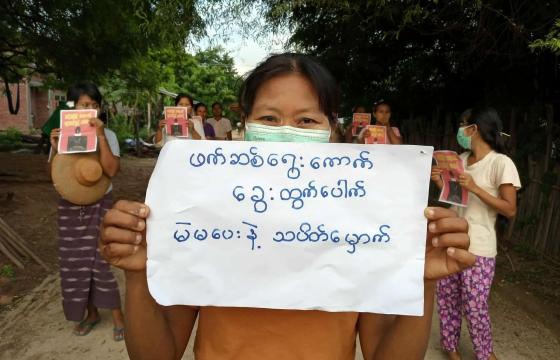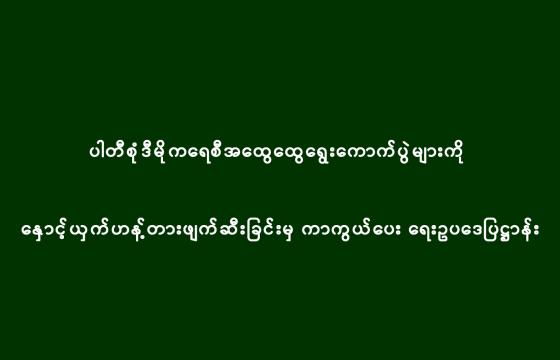Strict new measures were imposed on food parcels received by inmates in Pathein Prison in the Ayeyarwady Region capital of Pathein after fighting between the Arakan Army (AA) and the junta spread into Ayeyarwady Region’s Thabaung Township.
AA and people’s defence force (PDF) combined offensives against the junta spread from Arakan (Rakhine) State into Ayeyarwady Region for the first time on 3 January 2025 when the AA and PDF soldiers engaged with junta soldiers in Thabaung Township.
Since early February, prison authorities have mandated that prisoner’s food parcels, that they can receive twice a week from relatives, can contain no more than three different types of food and seven sachets of instant coffee mix. They have also banned the delivery of books and medicine to inmates.
As a result, inmates are not receiving enough food and are forced to buy food from the prison store, where authorities sell items at three times the normal price, according to sources close to Pathein Prison.
Ko Thaik Tun Oo, a steering committee member of the Political Prisoners Network - Myanmar (PPNM), warned that the situation could lead to malnutrition and deteriorating health amongst the inmates.
He said to NMG: “Whenever prisons restrict access to food sent by families, inmates' immune systems often become weakened. They tend to suffer from weakness and exhaustion, particularly in the lower body. These issues have become almost routine whenever parcel restrictions are enforced.”
Also, the prison authorities know that the inmates’ drinking water is contaminated with lead and leading to lead poisoning amongst the inmates, but are doing nothing to improve the water quality. Inmates with weakened immune systems, particularly elderly political prisoners, are suffering from lead poisoning that can lead to paralysis of the lower limbs, according to PPNM officials.
Sayarma Lin, another PPNM official said: “More attention is urgently needed regarding the situation of political prisoners in Pathein Prison. PPNM has made every effort to investigate and protest the conditions, hoping some of the restrictions will be eased. However, it’s difficult to say if these restrictions will be permanent, especially with ongoing military tensions in the region. We must continue to monitor the situation closely. For now, PPNM is still working to investigate the prison’s conditions, but it’s possible that, like in other prisons, communication may eventually be cut off. Regardless, PPNM will remain vigilant and continue seeking any available information.”
The Pathein Prison authorities are also demanding bribes from the inmate's families before they will give the families permission to visit their relatives in prison, according to sources close to the prison.

